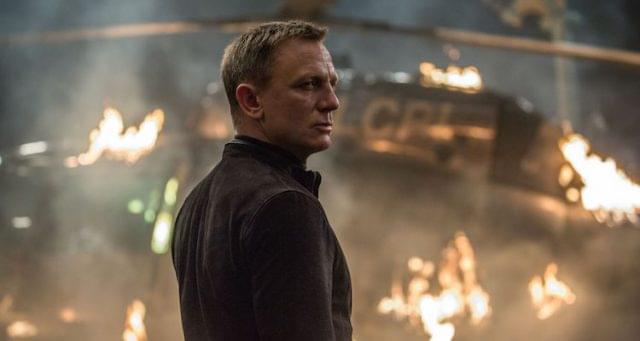
Daniel Craig’s fourth outing as James Bond finds him wearier, less humorous, and more apathetic than before – and buddy, I’m right there with you. “SPECTRE” fills in the blanks of a standard 007 adventure, but it feels like those involved were merely completing an assignment. How it was made by the same director, Sam Mendes, and most of the same writers as the energetic “Skyfall” is beyond me.
(Then again, “Casino Royale” was from the writers as “Die Another Day” and the director of “GoldenEye.” The Bond films, perhaps more than any other franchise, are shaped by more hands than just the authors’. Sometimes the extra interference pays off, sometimes it doesn’t.)
“The dead are alive” appears as an epigraph at the beginning, hinting that the film will deal with one or two things: the resurrection of deceased persons, or a general fixation on death. Bond is reminded often of Vesper Lynd (Eva Green), who died in “Casino Royale,” and of his beloved M (Judi Dench), who bit the dust in “Skyfall” but has a message for him in “SPECTRE.” Bond’s parents died, too, as you’ll recall, and “SPECTRE” continues the trend of mining Bond’s past for new complications — even when, as in this case, the new information is of such magnitude that it’s ridiculous to think 007 never mentioned it before.
The present concern is over an international organization of villains who seem to be uniting behind a common goal. But Bond is sidelined, officially: after going rogue one too many times, he’s put on leave by the new M (Ralph Fiennes), who’s under new scrutiny from MI6, which wants to shutter the Double-oh program as obsolete, which it seems like has been the goal for the last four movies. Moneypenny (Naomie Harris) isn’t given much to do, but Q (Ben Whishaw) assists Bond on the sly.
There are Bond girls: Lea Seydoux as Madeleine Swann, and Monica Bellucci as the widow of a guy James assassinated. (Bellucci, as 007’s first age-appropriate lover in years, is gone after one scene.) There’s a big, mean henchman: Dave Bautista as Mr. Hinx. There are action scenes, but nothing memorable.
And then there is the villain. He’s played by Christoph Waltz, an addictively watchable actor whose performance in “Inglourious Basterds” six years ago lingers as one of the most entertaining bad guys in recent memory. Here he has limited screen time, and is disappointingly utilized even then, doing nothing more than rehashing old Bond storylines.
What kind of monster casts Christoph Waltz as a villain and then hardly uses him?!
When Craig took over the part and the character was essentially rebooted, the producers wisely addressed the elephant in the room: James Bond’s old-fashioned brand of espionage is quaint in the 21st century. The theme of the last few movies has been 007’s efforts to find the balance between old and new, to keep what still works and replace what doesn’t. But now, four movies in, this relentless focus on the dreary realities of our modern-day surveillance state is just a drag. Things are different now. We get it. Can we let Bond get back to doing what he does best – and, more importantly, to let him (and us) have fun doing it?
C+ (2 hrs., 28 min.; )





